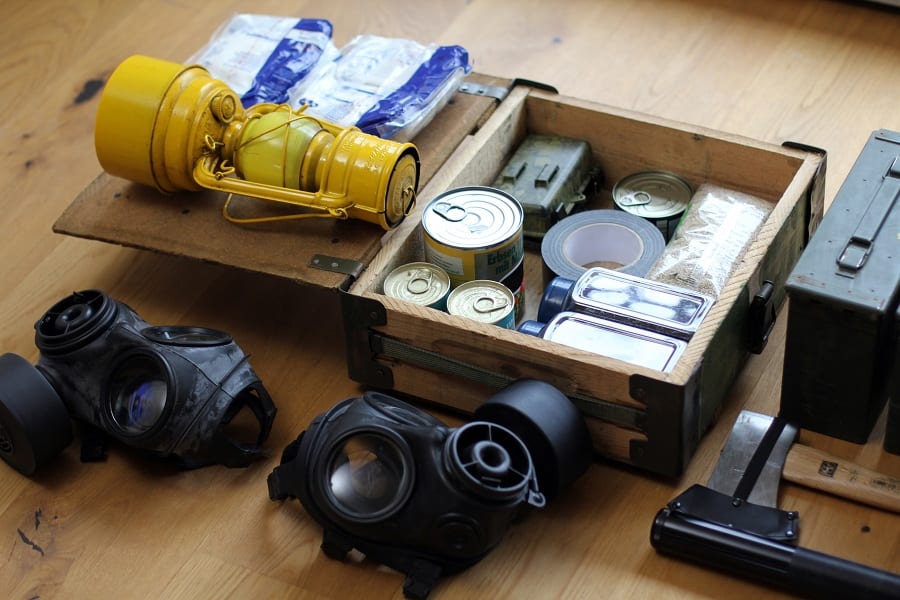It is safe to say that prepping is one of the most underrated things in the world.
Most people do not recognize the importance of prepping until they face grave trouble, such as natural disasters, terrorist attacks, or other emergency scenarios.
In other words, most people think about prepping and regret not doing it when they see the breaking point of our social system.
Unlike what governments and authorities make you believe, the system does not need much to break down. We can consider the case of the Coronavirus pandemic as an example.
Probably no one predicted that people would have to stay indoors for months and work from there. It was one of those points where we saw how weak and vulnerable our so-called modern systems are.
Sure, the COVID-19 pandemic did not force us to survive in the wilderness, but future catastrophes may not show us that kindness.
For example, we have the case of Katrina and Superstorm Sandy, which forced people to leave their homes and rely on the mitigation steps from the government. And we know how ineffective those mitigation steps were.
It is why it makes sense to be ready with prepping before the next disaster hits. And we have covered every aspect you should know about prepping in this guide.
Contents
What Is Prepping?

The dictionary definition of prepping says it is the action of preparing something or preparing for something. However, in survivalism, prepping refers to the act of preparing for emergencies and catastrophic disasters.
It is done by creating a survival kit of essential resources such as food and ammunition. Depending on the type of disaster/emergency you are preparing for, the prepping bundle will have various contents.
For instance, if you want to prepare for medium-impact incidents like riots, wildfires, volcanic eruptions, ice storms, and avalanches, you need the food and resources to survive for a few weeks.
High-impact incidents force you to stay prepared for months or years on the other end of the spectrum. In this case, we have to deal with issues like hurricanes, nuclear attacks, wars, technological disasters, and pandemics.
Prepping means you should be ready to handle these situations without necessarily waiting for a government to provide the resources.
Depending on where you live and who you live with, prepping requirements would vary by a great extent. However, these variants do not change the fact that you need some level of prepping in your life.
Why Prepping?
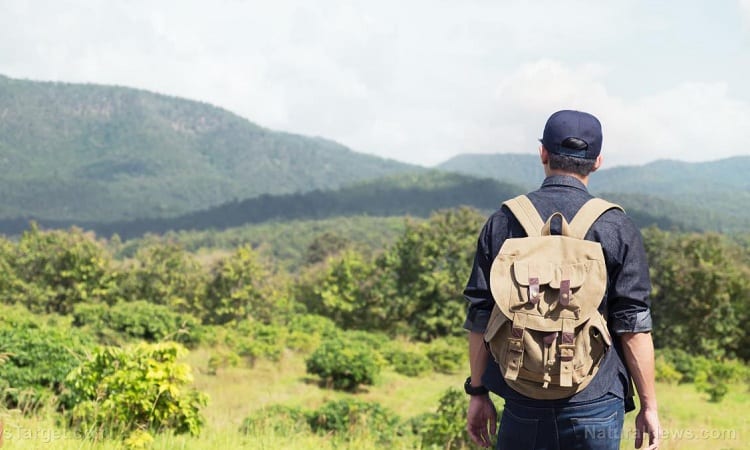
We believe you already know the answer to this question but let us explain in detail.
The first reason why you should do prepping is that you cannot predict when the next disaster or emergency would arrive.
Like we did not know Katrina or the COVID-19 pandemic was going to hit us, the next disaster may occur at any point in time.
Prepping will ensure that you have some extent of peace of mind if and when these catastrophes occur.
You (and your family) will have enough resources to survive for a few days or even weeks in the wild if required.
The second reason is the more compelling one, though. Previous catastrophes in the United States and other countries have shown how inefficient and ill-equipped most governments are in handling such incidents.
It is why people have to wait in long queues and rationing systems to get essential supplies for life. Ensuring that you have a prepping system ready can reduce your dependence on this inefficient system.
At least for weeks, you can survive on your own.
Last but not least, prepping can increase your confidence by a long shot. When you get used to prepping, it also means you get used to surviving on your own, especially without all the modern comforts.
For instance, even when faced with problems like power outages and floods, you will have a shot at surviving in the wild. As you can guess, this factor alone will improve your self-esteem and your family’s.
Sure, these catastrophes may not happen at all. But it is good to stay prepared rather than panic at the last minute.
In other words, prepping can help you save money and time and increase your chances of surviving different types of disastrous incidents.
Common Prepping Myths
You can find many myths surrounding the concept of prepping and preppers. It is essential not to be carried away by these myths, you know. Therefore, we have debunked the common prepping myths.
Preppers Are Anxious

On the contrary to this widespread myth, preppers are simply planning for the worst. Prepping allows people to stay confident about a time when an emergency arrives.
More importantly, prepping does not harm any other people in society. A family that does prep will make more resources available for others in the time of an emergency.
You Should Ideally Prep for 72 Hours
Many believe that 72 hours is the ideal time to do prepping for. However, it is a massive myth since you cannot expect catastrophes to go away within three days.
Therefore, your prepping kit should consist of elements that help you last longer off the grid. For instance, you cannot store ready-to-eat food for weeks or months.
Therefore, you should include some material that helps you cook in the wild using available materials.
Prepping Is Expensive

Many people believe that prepping is an expensive affair. Here is the problem with this understanding.
You cannot predict the value of money when a disaster hits. In practical terms, the amount you spend today on a prepping kit may not get you anything during an emergency.
Therefore, the amount of money and effort you put into prepping is entirely reasonable.
Anything Less than a Doomsday Bunker Is Not Enough
Here is another myth in the prepping world. Pop culture dealing with survivalism may make you believe that prepping is about many ammunition and doomsday bunkers.
However, depending on the scenario you are in, a simple bag with a first-aid kit and essential supplies will be more than enough. In other words, you can start prepping as simply as you want.
As you can see, these debunking these myths points out the practical aspect of prepping. And, only a correct idea about prepping will make it a helpful affair in catastrophic scenarios.
Prepping Vs. Survivalism
Another point is that you should not get confused between prepping and survivalism.
Though they may have some similarities, the differences between prepping and survivalism are more prominent than you think.
Prepping

As we mentioned earlier, prepping is about emergency preparedness. Preppers understand that a disaster could occur at any point in time. And they want to be ready for the problems that come with such a tragedy.
For instance, preppers ensure that they have access to essential resources like food, power, and heat when a disaster hits society.
Depending on the type of prepping they are dealing with, these people will stockpile a wide variety of resources.
We are talking about ready-to-eat food, cooking infrastructure, and more.
For instance, preppers with an advanced plan tend to have a bugout location to stay for an extended period. These locations are far from the mainstream living spaces and come with some kind of extra defense.
This kind of prepping will help high-impact situations like war, country-wide martial law, hurricanes, or volcanic eruptions.
An essential characteristic of prepping and preppers is that they are ready to go back to social living once the disaster moves away.
Survivalism

Survivalism takes emergency preparedness to a new level and regularity. Unlike preppers, survivalists do not wait until the disaster to hits society.
Instead, they are always ready to live in the wild and stay off the social grid we are part of.
While prepping is getting prepared for emergencies, survivalism is a way of life. As a result, survivalists will learn how to spend considerable time off the grid.
Because of this principle difference, we can see that survivalists follow a unique packing method.
For instance, instead of carrying food and raw materials that help them last for days or weeks, survivalists will have equipment that allows them to fish and hunt for food.
We can say that survivalism wants you to go back to the primitive lifestyle of the hunter-gatherer community.
However, since we live in a modern world, you can depend on various new technologies. Portable stoves and survival backpacks are some of these pointers.
The Differences
As you can see, the differences between prepping and survivalism are not minor. Both a prepper and survivalist indeed try to live off the grid. However, there are differences in their philosophy.
Therefore, while a survivalist can quickly become a prepper, not all preppers can survive in the wild. Even the preppers who get ready for high-impact incidents will run out of resources in a few months.
They may not always have the set of skills to survive in the wild, either.
Similarly, you can quickly tell the difference between a prepper’s bag and a survivalist’s bag. Survivalists can live in the wild for long by choosing equipment that enables sustainable living.
Even in a situation where they cannot go back to society, survivalists will be fine. On the other hand, preppers need to go back to the community sooner or later.
Therefore, as you do not believe in prepping myths, you should not get confused between prepping and survivalism.
Prepping Skills
As you can guess, you need many skills for prepping. While we cannot list all the skills you need for prepping, we have listed the top 10 skills.
If you do not have these skills, you have to develop them to have a smooth prepping experience.
survivalist mindset
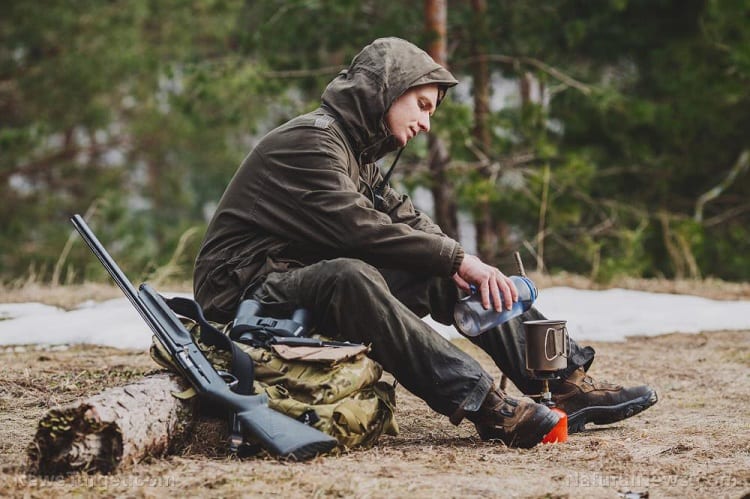
You need a survivalist mindset that will keep you alive and running even when off the grid. This is a broad term and requires you to have a set of sub-skills.
For instance, you should know how to handle various situations when you are in the wild and without social norms.
More important is the spirit and confidence to live without the comforts you are familiar with.
Sustainable fitness
This is another skill you need for prepping. When you are in the bugout location, you may not have access to power and similar resources.
Therefore, you should be able to take matters into your hand. Depending on the situation you face, you may have to walk for long distances and do some heavy weight-lifting.
Hunting skills
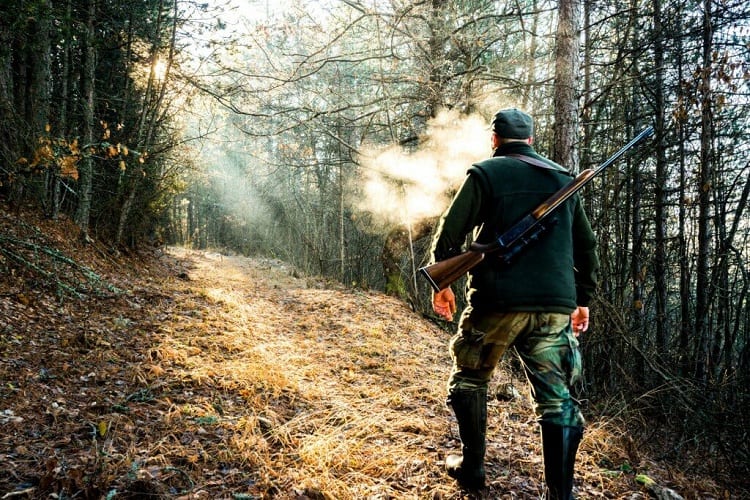
Hunting skills can also help you become excel at prepping. If you have the basic skills to hunt or fish, you can take a slightly different prepping approach.
Instead of carrying the food you need to survive, you can carry hunting equipment that will keep you alive. As a part of this, you may need some level of experience with weapons as well.
DIY Skills
They are also critical when prepping. After all, you are leaving the comfort of modern society for a specific period.
When you come across scenarios that you have no experience in, you should be able to do things all by yourself.
You can use these skills when it comes to cooking, hunting, surviving, and communal living.
basic medical skills
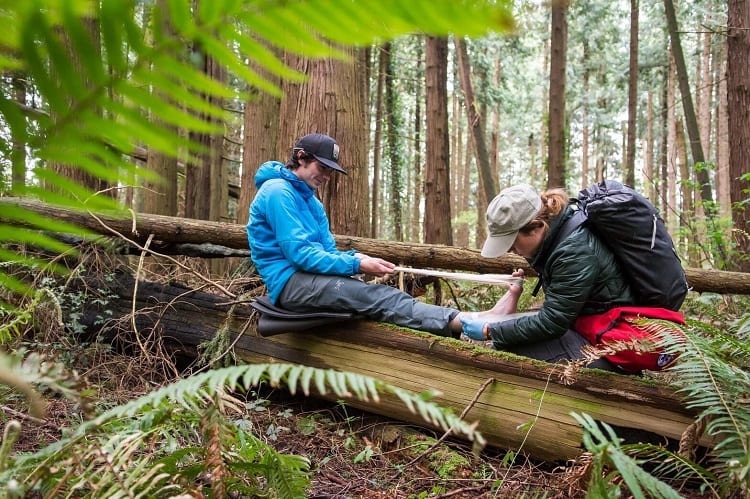
Preppers can also benefit from basic medical skills when they are off the grid. If the situation does not allow you to get to a hospital, you have to take care of first aid and other needs.
This becomes a crucial factor if you have to move around. You do not have to be a great surgeon or anything, but we are talking about basic movements.
You also need the right navigation skills to live a good life as a prepper. In the case of technological and system-wide failures, you may not have access to features like GPS navigation.
Therefore, you must be ready to use a traditional map and navigate properly. You should also have the right things in your prepping package.
agriculture skills

If we are talking about prepping for long-term incidents, you should also cultivate agriculture skills. If you cannot get ready-to-eat food or raw materials, you will have to find food independently.
Once again, your prepping bag should have the right kind of resources to make this possible. It should have plants that you can grow in adverse conditions.
Self-defense
Being able to defend yourself also becomes an important thing when you have to survive in a society without norms or ethics.
While you do not want to harm anyone, you should be able to protect yourself from many threats, including human and non-human.
It is also vital that your family has the same skills so that they do not get stranded.
shelter-building skills

Some experts recommend that you should have some skills on shelter-building when you want to do a prepping system.
In the worst-case scenarios, you will have to create makeshift shelters for you and the family.
Basic skills of woodworking and creativity will help you here, but you should have a good set of gadgets in the bag.
communication skills
As an additional thing, you should develop communication skills as well. Now, there are a few aspects to this point. One, you should have a ham radio that you can use for communication needs.
Now, the entire family should know these communication skills if you are planning some communal living. You should also check for communication systems available at the time.
Besides these dedicated skills, you should pay attention to factors like personal hygiene and a general idea about the flora and fauna to survive outside the modern world.
How to Get Started?
As we mentioned earlier, there is no single way-out for prepping. The strategy you need depends upon the type of incident you are preparing for.
There are also four primary levels of prepping you should know about.
Level-1 Prepping
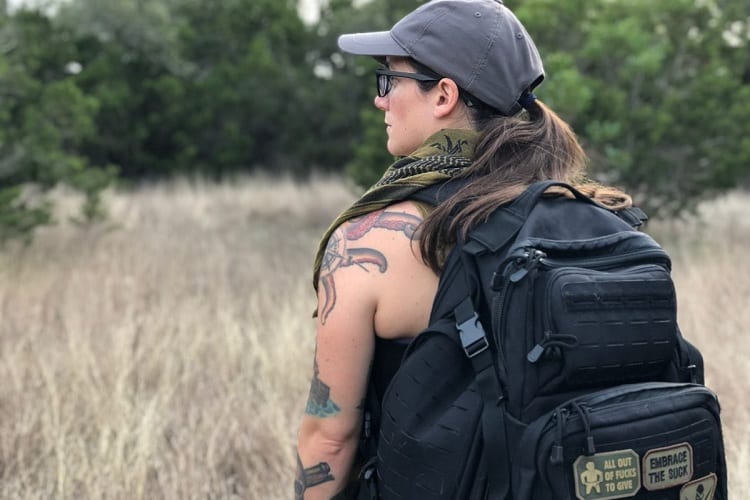
In this form of prepping, you learn how to handle the first 72 hours of the incident. It will help you survive several low-impact incidents. As a part of this prepping plan, you need a few factors.
First of all, you must have the basic set of survival skills and the equipment to keep living. Most people also have a bugout place to live in isolation and far from the potential threat.
As for the things you pack, you should have a bugout bag that contains food/raw materials for a couple of days. You can also add accessories like multi-tools and survival knives.
Level-2 Prepping
In this form, you increase the survival period to a couple of weeks. Because of this change, you will need to carry resources for long-term survival.
Therefore, in addition to advanced survival skills, you should take a considerable amount of food and raw material. At the same time, you will have to set up a makeshift way to cook food and live within the environment.
Experts also recommend that you should carry enough ammo and weapons so that you can survive. In this stage, you will have to train your family to take care of health, exercise, and self-defense.
Level-3 Prepping
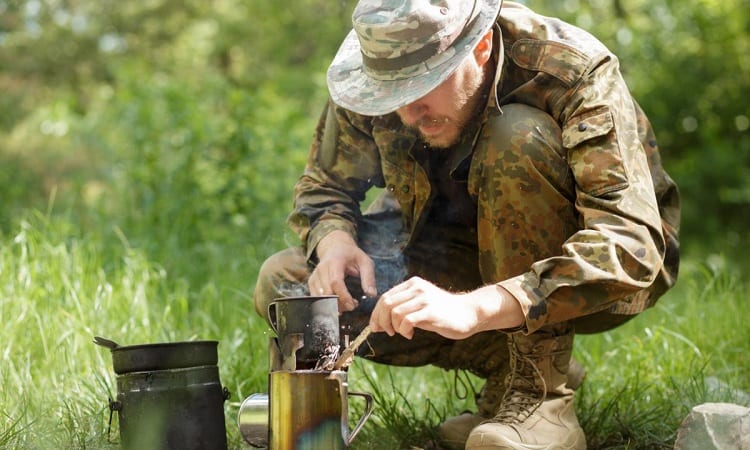
This form of prepping will prepare you to survive for a couple of months in the wild. Therefore, in addition to everything you had in the last category, you would need to get more ammo and food sources.
It also is an excellent decision to have a bugout bag for everyone in your family. Doing this will help you increase the number of resources you can carry around and increase the chances of survival.
Since you want to survive off-grid for months, the bugout bag should also have portable stoves and other tools. Your survival spirit and creative skills will become more helpful in this scenario.
Level-4 Prepping
In this form of prepping, you are getting rid of the ultimate threats out there. You have to plan things from a survivalist point of view from now.
For instance, instead of carrying food and raw materials, you have to focus on seeds that you can grow. As a family, you will have to develop survival skills, including farming and self-defense, in the long run.
You should also make yourself immune to the weather changes and carry material to help you survive. In the end, since we are talking about communal living, you should have space for more people.
Depending on the level of preparedness you need, you can follow the points mentioned in each category. It is also a superb idea to have multiple prepping kits ready at your home.
Then, whenever the disaster hits, it will be easy for you to start living.
Prepping Mistakes to Avoid
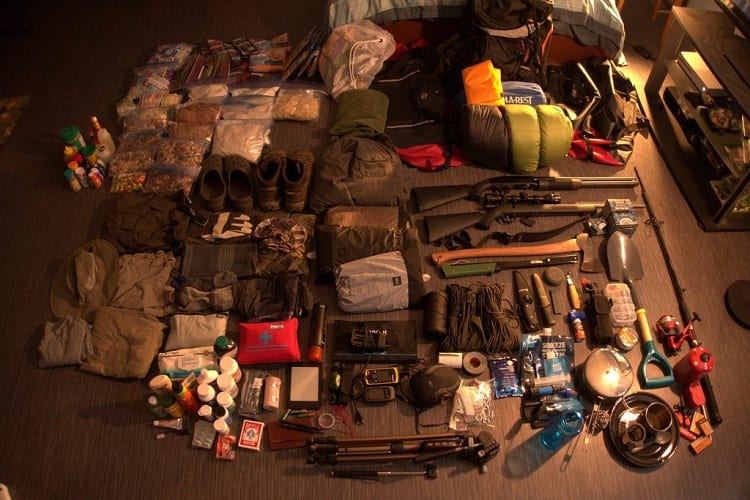
Here are the common mistakes you should avoid while prepping.
- You should not optimize the preparedness for one kind of event. Instead, the bugout bag and prepper plans should be generally helpful. Only then will you be able to handle a variety of issues.
- You should not overestimate the resources you have, especially in terms of safety. For instance, do not think that your existing home can survive most of the issues. It cannot, and it is also better to get a bugout location ready.
- You have to consider prepping as a collective task instead of going all alone about it. If you live with a family, the entire family needs to survive during the issue. Therefore, you should seek their opinions and help while prepping.
- As we mentioned earlier, you need a couple of skills to survive off-grid. Therefore, a simple bugout bag is not going to help you. Along with the bag, you should develop the right set of skills you need, including but not limited to self-defense and agriculture.
- Last but not least, you should be quiet about your prepping plan. During emergencies, people go so wild that they lose many humane values. Therefore, your prepping plan should not be an easy way for those bullies to loot stuff from.
Conclusion
We believe our prepping guide was comprehensive enough to give you a clear idea. We have sought expert opinions and case studies from multiple sources before styling this guide.
Since we have mentioned the many routes you can take towards prepping, we believe you have some choice. After all, different people use different strategies to handle emergencies, and the prepping guide must be versatile.
Resources:

